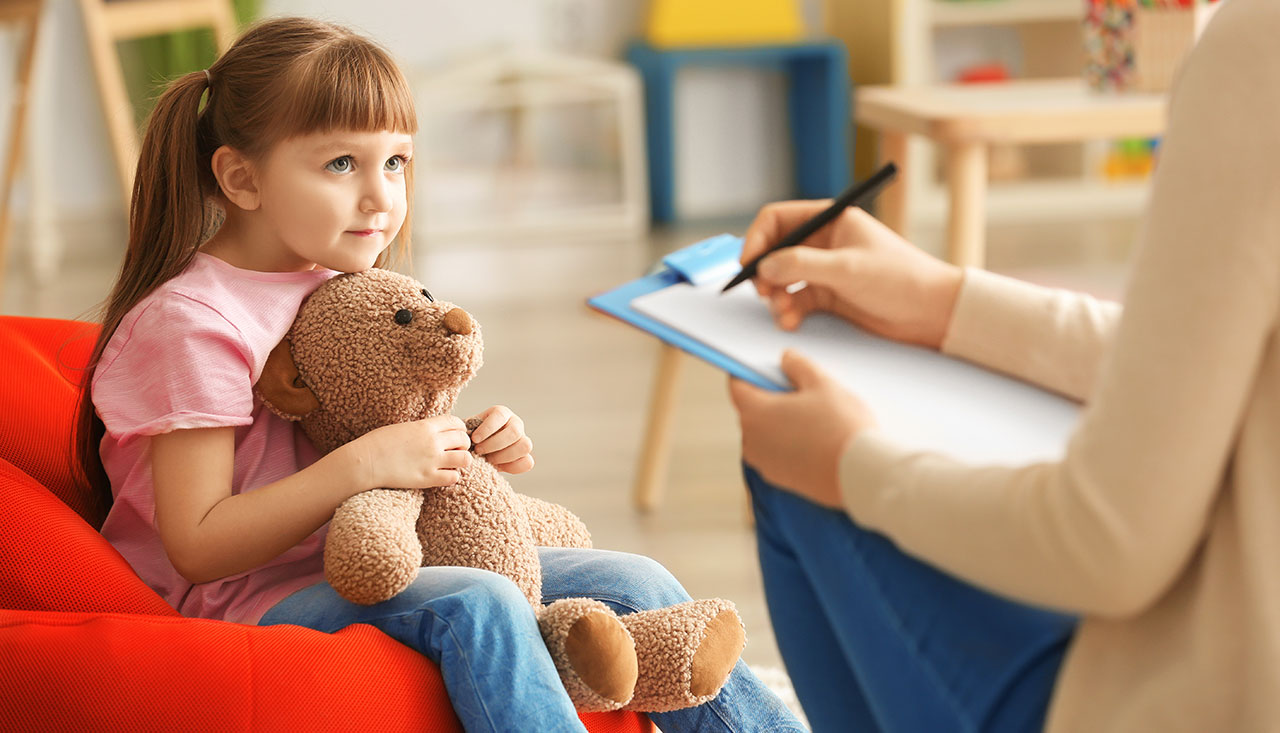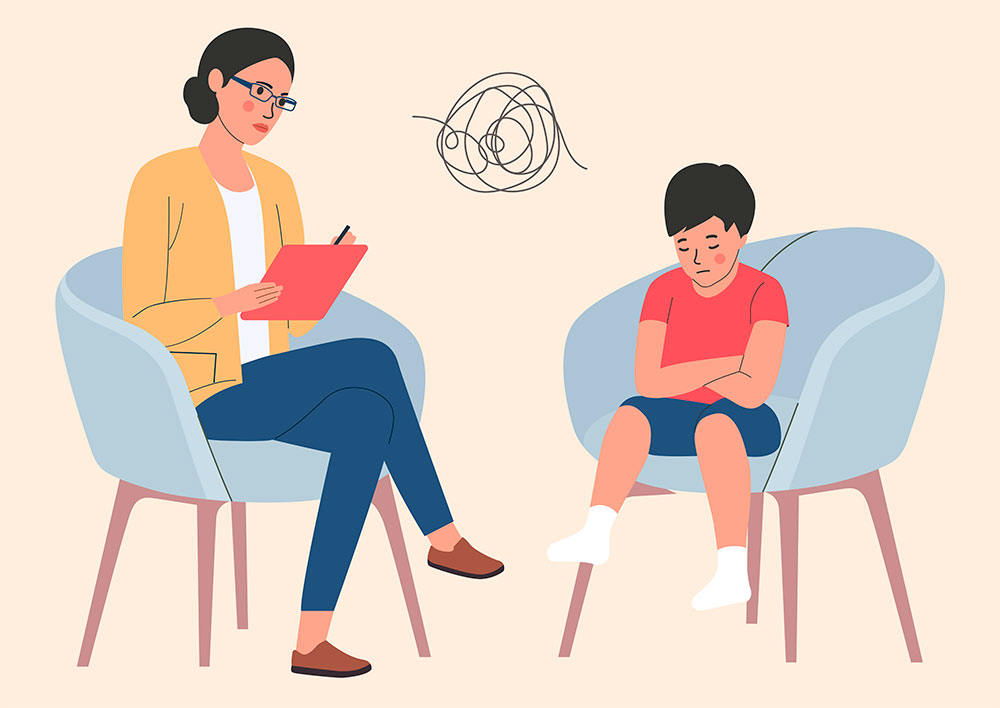
Counselling for Children and Young People in Liverpool
If your child or young adult is showing signs of depression, anxiety, anger, not sleeping well, bed wetting or any other type of issue, we can help.
The Liverpool Counselling Association is home to some of the best child counsellors in the city. We carefully select our counsellors to ensure you and your child get the best support possible.
If you would like to book a free consultation for child or teenager counselling, call 07700153066. We can talk to you over the phone or via video call, or you can attend our private practice, which is located at 40 Rodney Street, Liverpool, L1 9AA.
If now is not a good time to call, click the button below, enter your details into the form, and we’ll contact you shortly.
How do you know if your child might need therapy?
It’s much easier to spot a child suffering from physical pain than it is with mental pain. However, there are signs and symptoms of a child suffering from a mental health problem. If your child is displaying any of the warning signs below, it doesn’t necessarily mean they have a mental health problem. We recommend you learn about the mental health warning signs in children and teenagers, listen to what they are telling you and make a decision whether you think your child might need to talk to a child counsellor.
Struggling to Concentrate
It is perfectly normal for a child to daydream every once in a while, but it could be a problem if they do it too much. You need to pay attention if your child is falling behind at school and not handing in their homework on time. If your child’s schoolteacher tells you your son or daughter is easily distracted or showing signs of learning difficulties, you must pay attention. If any of this sounds like your child, one of our child counsellors will be able to find out why your child is struggling to concentrate within a few sessions.
Persistent Sadness
Children often have a hard time articulating their thoughts and expressing their feelings. If a child is showing signs of persistent sadness, it could be because there is something wrong, and they don’t know how to explain it. The first step in trying to help a sad child is to ask them why they feel sad. If your child cannot explain the reasons for their persistent sadness, the next step is to talk to a child therapist. A skilled therapist will uncover your child’s sadness and explain how to remedy the problem.
Depression
Children can suffer from depression just like adults. If you’ve noticed significant changes in your child’s sleeping and eating habits and their mood changes quite drastically, it could be depression. Depression in children manifests as feelings of guilt, hopelessness and feelings of being sad and upset. Many children will experience symptoms of depression, but it’s usually only temporary. Children whose parents are getting divorced are more likely to show signs of depression. If you suspect your child is struggling with depression, reach out for help. Please don’t leave it to manifest and get worse. There are serious mental health conditions associated with major depression.

Overreacting
Young children experience strong emotions just like adults. However, children have yet to learn how to regulate strong feelings and emotions, often leading to overreacting. Young children don’t have the same amount of life experience as adults. Something which may seem like a minor setback to an adult can seem like a disaster to a child, so they overreact. Another scenario in which children might overreact is if they feel threatened in some way. A child’s overreaction is usually a way of the child expressing their inner feelings. A child therapist can help a child understand why they react the way they do and help them manage their feelings and emotions without overreacting.
Falling behind at school
You need to pay attention if a child’s school grades suddenly drop. Emotionally stable children usually have consistent grades in school. However, the opposite is also true. If a child is being bullied, they’ve lost a parent, or their parents are going through a divorce, it could reflect in a child’s schoolwork. If you’ve noticed your child’s school grades have dropped, talk with their teacher and try finding a solution. If your child’s school grades don’t improve, there might be an underlying reason. Our skilled child counsellors can talk to your child and find out why they aren’t doing as well as they used to be in school. Our highly trained child therapists have helped hundreds of struggling schoolchildren throughout Liverpool improve their grades and improve their prospects.
Anger and Aggression
There are many reasons why a child or teenager might be struggling with anger. The cause of anger in children is often attributed to environmental, biological, psychological or developmental reasons. It’s important to try and pinpoint when a child started to display signs of anger and aggression. Has the child experienced any trauma? The loss of a parent? Divorced parents? If no obvious traumatic experience could have caused the child to be angry, it could be a developmental or psychological reason. The only way to get to the bottom of why a child or teenager is angry is to talk to a child therapist. One of our highly skilled child therapists will be able to find out why your child is angry and offer solutions to help your child manage their anger in a healthier way.
Changes in sleep patterns
A regular sleeping pattern is vitally important for children of all ages. A set bedtime helps children get a good night’s sleep and helps them concentrate better at school. Children with irregular bedtimes risk developing behavioural problems and struggling to concentrate in school. We can’t emphasise enough how important sleep is to a child’s brain development and day-to-day activities. If your child isn’t getting enough sleep and is constantly tired, you must address the underlying problem as quickly as possible. Whether your child is a toddler or a teenager, talking to a child therapist will help you get to the bottom of the problem and offer solutions.
Child talks about death and dying a lot
It is perfectly normal for children to be curious about death and ask questions. However, if a child seems to be consumed with the subject of death and dying, you need to be alert. If you hear a child talking about taking their own life or somebody else’s life, don’t shrug it off and dismiss it. Call a suicide prevention hotline and ask for support. Alternatively, talk to one of our Liverpool based child counsellors and ask for help.
Hyperactivity
Children are full of energy, and as adults, we often wonder where they get it all from. However, some children have so much energy they can’t sit still, have low attention spans and struggle to focus on one task. Children with hyperactivity, short attention spans, impulsiveness, and trouble focusing might have ADHD (Attention Deficit Hyperactivity Disorder). It’s important to note that not all hyperactive children have ADHD, but it’s something to pay attention to. If the child’s hyperactivity and inability to focus are starting to disrupt the child’s daily life, it’s time to reach out for help. There are medications available for ADHD in children that will help them feel calmer, allowing them to focus and concentrate.
Regression
Child regression is when a child reverts back to behaviours they had outgrown, such as bedwetting, sucking their thumb, increased clinginess or talking like a baby. The child might even regress as far as being unable to feed themselves or go to the toilet.
The cause of child regression is usually after some stress, trauma or significant life change in the child’s life. A life-changing event for a child could be moving home, the birth of a new sibling, starting a new school, parents going through a divorce, or losing a parent. Children often regress to express their insecurity and want someone to comfort and reassure them. If you’ve noticed signs of child regression, be on the lookout for any life changing event in the child’s life. If the problem persists, ask for help from a trained child therapist.
How can therapy help?
Parents often seek therapy for their child when they have noticed a significant change in their child’s mood or behaviour. Here are a few examples of what prompted parents to contact one of our Liverpool based child counsellors:
- A child is struggling with anxiety or depression.
- The child has gone through significant life changes.
- The child’s family dynamics have changed.
- A child or teenager has behavioural problems such as anger and aggression
- Parents want to help to improve their child’s emotional and mental health
What happens in therapy?
One of our child therapists will arrange a date and time for you and your child to attend our private practice at 40 Rodney Street, Liverpool, L1 9AA. The first appointment will allow us to meet you and your child, ask your child a few questions and listen carefully to their answers. Allowing us to ask your child questions will allow us to learn more about your child and find out the actual problem. Our child therapy sessions usually consist of the following:
Talking – one of the best ways to express feelings and emotions is through talking. We encourage children to talk about their feelings and emotions rather than expressing them through action. Children often have a hard time trying to articulate their thoughts and feelings. A child counsellor is trained to listen to what children are trying to communicate and make them feel heard. Children are in a much better position to learn once an adult understands how they are feeling.
Problem-Solving – A child counsellor or therapist will ask older children questions to get to the root cause of the problem. A trained counsellor will listen carefully to your teenager and find out if their problem has something to do with at home or school. Once the cause of the problem has been identified, we can offer solutions.
Final Words:
If you want to give your child the best possible chance of working through their issues, child therapy is the best option. If parents don’t have the knowledge or skills to address their child’s problems, they are likely to manifest and get worse with time.
Our child counsellors are fully qualified and experienced in addressing various issues with children. You can book a free child therapy consultation, which will give you the opportunity to talk to us over the phone, or you can visit our private practice located at 40 Rodney Street, Liverpool, L1 9AA.
Book a FREE 20 Minute Consultation
If your child or teenager is struggling with any type of behavioural or mental health issue, we can help. Our child therapists are fully qualified and experienced in helping children overcome some of lives most difficult challenges.
We offer free consultations for parents and children so we can meet one another and discuss the problems your child is struggling with.
Book your free child therapy consultation in Liverpool by calling the number below:
